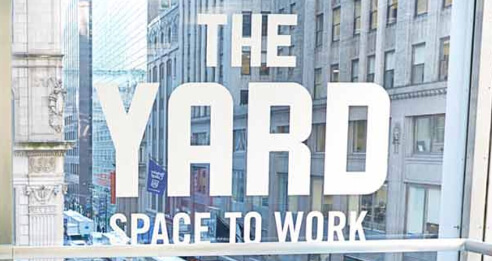
Largest Coworking Companies


Coworking has revolutionized the traditional approach to work. Millennials are no longer bound to their stuffy office cubicles. Instead, they choose to work in bright and spacious coworking spaces that offer a variety of workstation options—from floating desks to dedicated offices, integration events, free drinks and the priceless feeling of belonging to a community.
Because coworking encourages people to work alongside each other, and sometimes share the same equipment, security implications can arise. In this article, we'll define the safety concerns that should be addressed by space owners.
Recently, data breaches and malware attacks have been the prime issue for thousands of companies across the globe. Coworking spaces attract different types of individuals. Prospering entrepreneurs, corporate clients, and startups typically look for long-term leasing options, while freelancers and one-off members can buy a daily pass and never use your venue again. It takes one malicious user to compromise the data of hundreds of members.
Therefore, it's crucial to be proactive and protect your customer’s devices and data from being hacked. For Wi-Fi connection, allocate unique credentials and a password to each user. To ensure better protection, you can employ a two-factor authentication.
You can also go a step further and introduce individualized private Wi-Fi networks.
Don’t allow your tenants to set up their own access points because it can create interference and inhibit Wi-Fi connection.
Implement a security policy that every member goes through when signing a coworking agreement and adheres to throughout their stay.
With coworking, there's always a risk of proximity to competitors; therefore, your clients expect that their privacy is respected. Make sure the meeting rooms are soundproof and that what's said inside a conference room stays there.
All the exits and gates should be protected. Whether or not your place operates 24/7, installing an integrated alarm system and monitoring access is a smart decision. Well-lit and regulated entrances should have access codes or smart cards containing an individual's user information. Alternatively, you can implement mobile access control for your members so that they can access the premises using their smartphone credentials.

Installing video surveillance inside your coworking space is a smart idea. It can prevent or, worst case, detect a member’s misconduct. Dissuading misconduct could prevent breaches of intellectual property rights and the endangerment of other members' personal safety.
The place should also be stocked with essential first-aid kits if someone feels unwell.

Make sure that your space provides lockable storage options for members. It is also advised to lock any equipment, such as projectors or tablets, whenever it's not in use.
All in all, security, privacy and confidentiality are some of the biggest challenges for coworking spaces; however, a proactive approach, implementation of some of the best security practices and introducing a strong security policy will prevent safety issues.
Save your community manager 41 hours each week—learn how The Yard did it with cloud-based access control.
Read the Case StudyThe Guide to Make Your Space More Profitable
Including interviews with experts and consultants.
Free access to our best guides, industry insights and more.
